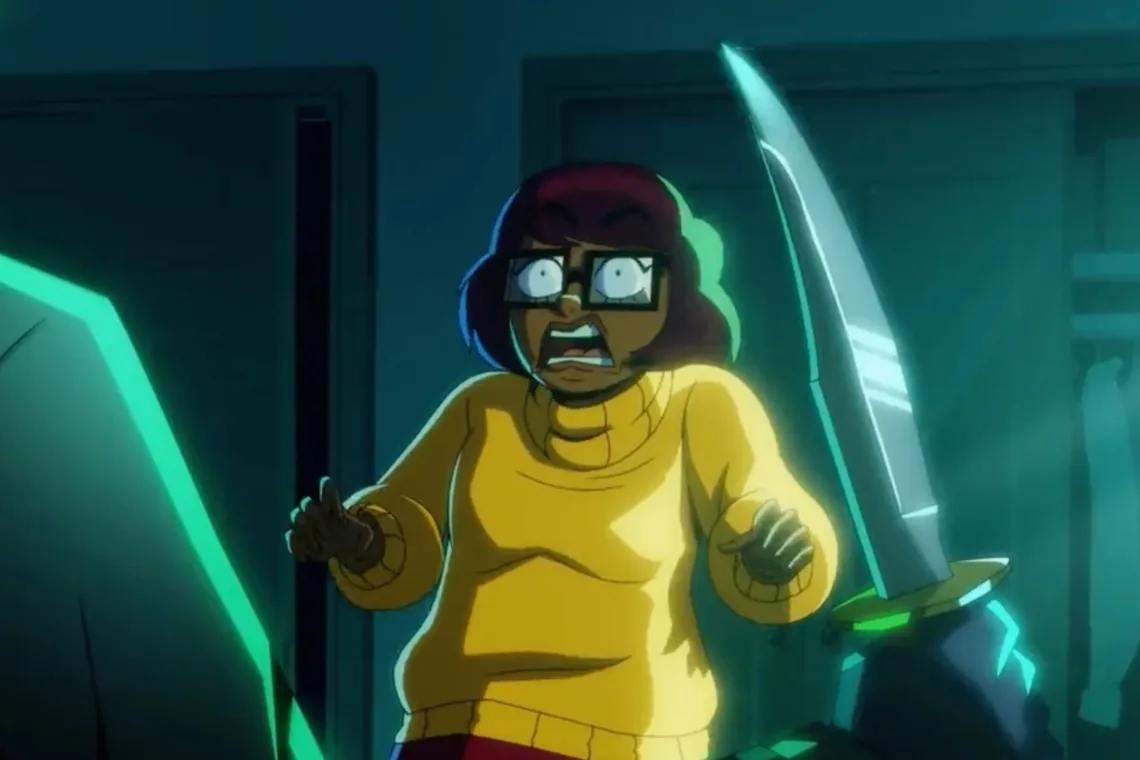Velma: A modern twist on a classic character fades out
Introduction to the iconic prequel
The Max adult animated series “Velma,” a fresh take on the beloved “Scooby-Doo” universe, has come to an end after just two seasons. Despite its captivating premise and star-studded cast, the show couldn’t secure a continuation and left fans hanging with questions and some disappointment.
A new age of Mystery Inc.
Premise and setting
“Velma” acted as a prequel to the classic “Scooby-Doo” series, focusing on the high school years of the cherished Mystery Inc. gang. Set in the mysterious town of Crystal Cove, the show revolved around Velma and her friends tackling intricate mysteries while navigating the complexities of teenage life. This series offered a contemporary twist on the original theme, integrating humor and modern issues to appeal to both new viewers and nostalgic fans.
The voice cast
One of the series’ major strengths was its impressive voice cast, headlined by Mindy Kaling as Velma. Adding to the lineup were talented actors like Glenn Howerton, Sam Richardson, Constance Wu, Russell Peters, Melissa Fumero, Sarayu Blue, Jane Lynch, Wanda Sykes, Cherry Jones, Frank Welker, Nicole Byer, Gary Cole, Andia Winslow, and Sara Ramirez. This diverse ensemble brought a richness to the characters, enhancing the storyline’s depth and appeal.
Behind the scenes: creators and producers
The creative minds behind “Velma” included notable figures such as Charlie Grandy, who not only developed the series but also served as an executive producer. Mindy Kaling similarly played a significant role as an executive producer, alongside Howard Klein and Elijah Aron. Their collective efforts crafted a series that was both fun and fresh, breaking away from the conventional approach to the franchise.
Additional production talent
The production team also featured Jessica Kumai Scott as a co-executive producer, with Amy Winfrey as a supervising producer, and producers Kandace Reuter and Rick Williams. Co-producers Moss Perricone and Greg Gallant contributed to the series’ unique tone and style.
Achievements and challenges
While “Velma” captivated a segment of the audience with its witty dialogue and modern storyline, it also faced notable challenges. The series premiered to mixed reviews, with some critics appreciating its bold take on the iconic characters, whereas others found the portrayal lackluster and the characters unrelatable. The first season garnered a critical approval rating of just 38% on Rotten Tomatoes, reflecting the polarized reception.
Critical reception
Critics pointed out that the characters, including Velma herself, often came across as unappealing. The show’s attempt to blend vulnerability with traits like selfishness and misanthropy didn’t resonate well with everyone. However, some praised the show for its ambition and the efforts to inject fresh life into a beloved classic.
The end of an era
Despite its short run, “Velma” made a mark with its Halloween special, which debuted on Max on October 3. This special episode offered fans one last chance to enjoy the quirky, adventurous spirit of the series.
Reflections from Max
In their statement, Max expressed gratitude for the creative efforts behind “Velma”: “Over the past two seasons, Mindy and Charlie have created an incredibly fun and fresh world within the iconic whodunit franchise. While we won’t be moving forward with another season, we thank them for their compelling coming-of-age storytelling, unrivaled clues, and hilarious hijinks.”
Industry impact and trends
“Velma,” like many modern adaptations of classic series, reflects a broader trend in the entertainment industry. There’s a growing interest in revamping and reimagining beloved franchises to cater to contemporary audiences. This approach often involves diving deeper into character backgrounds, exploring untold stories, and infusing narratives with current social and cultural themes.
Future for animated adaptations
While “Velma” may have faced cancellation, the door remains open for future projects that continue to experiment with classic characters and stories. This space is ripe for innovation, and the mixed reception of “Velma” may serve as a learning point for future endeavors. By understanding what worked and what didn’t, creators can craft even more engaging and resonant content for audiences around the world.
Did you enjoy this article? Share it on your social channels and let us know your thoughts! Don’t miss out on the latest updates! Follow us on social media to stay informed about the newest releases.

 Italian
Italian







